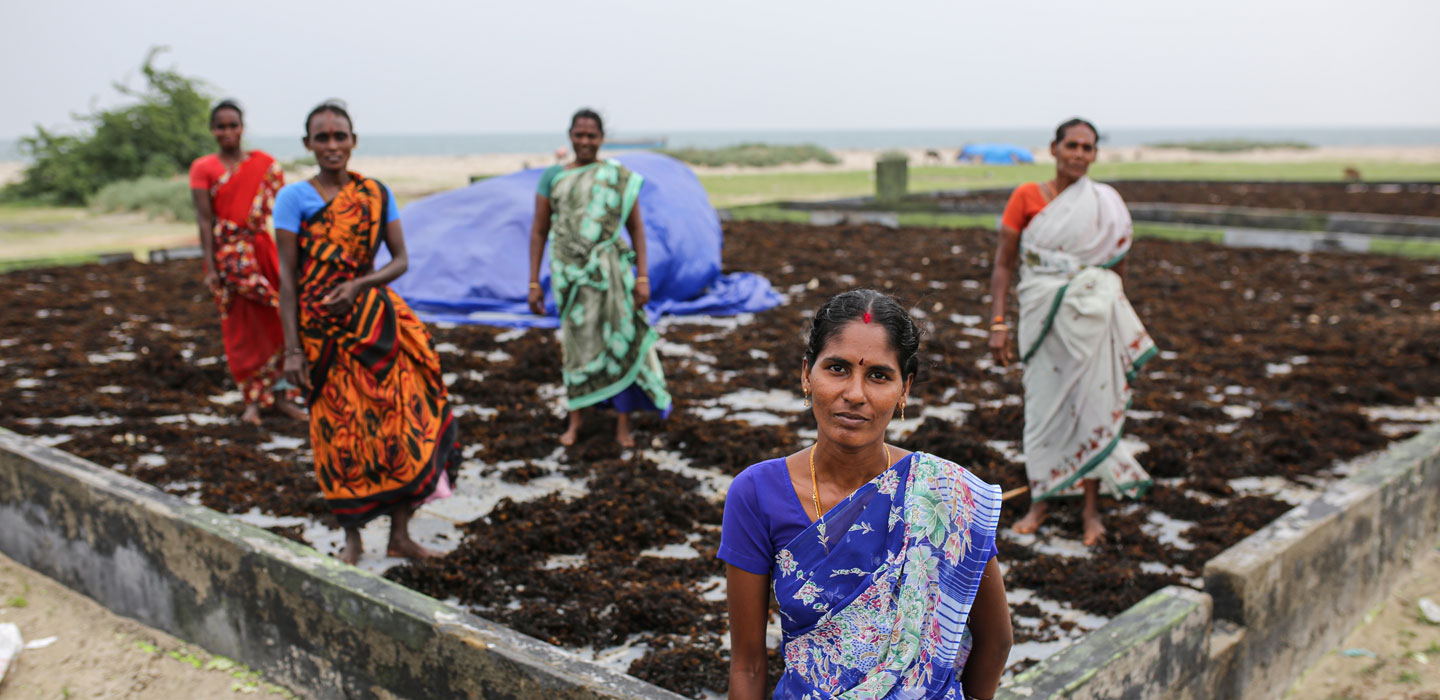Why farmers’ organizations matter: Your questions answered
IFAD Asset Request Portlet
Asset Publisher
Why farmers’ organizations matter: Your questions answered
Estimated reading time: 3 minutes
On their own, many small-scale farmers don’t have adequate access to markets, inputs, finance and information.
But when they come together to form farmers’ organizations, that’s when they find strength in numbers.
What are farmers' organizations?
Farmers’ organizations are autonomous membership-based organizations of small-scale rural producers, including cooperatives and unions. From grassroots to global movements, they all share one common goal: furthering their members’ interests by giving them a voice.
They can be organized by geography, as in Paraguay where local women formed an association to sell their produce in the capital over 235km away, and by commodity type, like the rice farmers union in Burkina Faso (UNERIZ) which collaborated with IFAD to help its members learn sustainable farming techniques, like agroecology.
How do farmers’ organizations help rural producers?
For some crops, only 6.5 per cent of the price goes to small-scale farmers and workers. Farmers’ organizations help to redress this imbalance by:
- Improving access to inputs and knowledge. In upland Laos, pig-farmer collectives teach members how to prevent the spread of swine flu.
- Sharing resources and expensive equipment. In Peru, the indigenous Kichwa people share technical assistance through the Alima Cacao Cooperative.
- Connecting producers to finance through community savings and rural finance institutions, like FO4ACP in the Democratic Republic of the Congo.
- Linking farmers to markets and buyers. In Rwanda, the FO4ACP-supported Ingabo Syndicate linked 15,000 cassava farmers to a cassava processor.
- Advocating for their interests. In Bosnia and Herzegovina, farmers organisation worked with policymakers to unlock subsidies for gherkin growers.
- Managing natural resources fairly and sustainably. Local community groups in Nepal manage river catchment areas to conserve water.
Crucially, as part of a collective, small-scale producers can do things that would otherwise be prohibitively expensive, laborious or time-consuming.
 |
| Palmira Rodríguez Ríos grows cocoa, oranges, bananas and Tahiti lime on her farm in Peru. With support from the AGRIDigitalization project, a local cooperative identified new markets for the limes. ©IFAD/Giancarlo Shibayama/Factstory |
What challenges do farmers’ organizations face?
Like individual smallholders, the biggest challenge for farmers’ organisations is access to finance. This makes it harder for them to provide services to their members. The issue is particularly acute in Africa, where 70 per cent of farmers’ organizations report that less than half their financing needs are met, compared to 30 per cent in South-East Asia.
Marketing products is also complex as they must negotiate commercial partnerships, have strong market access and build value chains, all while adapting to climate change.
Luckily, all these challenges are surmountable, especially with support from IFAD.
How does IFAD support farmers' organizations?
IFAD partners with farmers’ organizations so they can develop into stable, accountable organizations in which members thrive.
To set fairer prices, IFAD supports farmers’ organizations to increase their bargaining power, comply with quality standards, broker partnerships and develop dialogue with other organizations in the value chain.
In Sri Lanka, SPEnDP set up a collection centre for fruits and vegetables so farmers could supply the country’s biggest supermarket chain, equipped with an electronic display of the day’s wholesale prices.
IFAD also provides training and support, from fishers processing the catch to get better prices in the Philippines, to women’s groups in Nigeria using the GALS methodology to convince men to support their businesses.
Since 2005, IFAD has been meeting with farmers’ organizations and Member States at the Farmers Forum to discuss issues like food systems transformation and climate change.
What’s next for farmers’ organizations?
IFAD is committed to continue working with farmers’ organizations. As crucial partners in our work towards equitable and effective food systems, we are building their capacity in rural development and amplifying their voices.
As equal partners, we look to the farmers’ organizations themselves to understand their priorities, like climate finance and fair prices.
Publication date: 22 August 2023